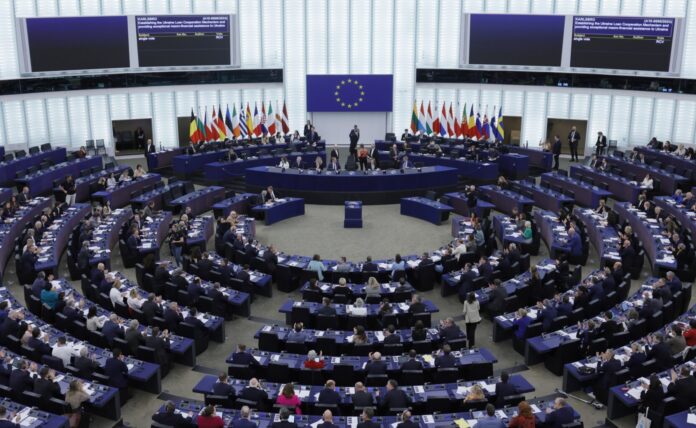Dimitrijeska-Kochoska: From July 1, the customs rate reduction in 67 goods used in the domestic industry

The Government of the last session adopted a bill on amendments to the Law on Customs Tariff, thus reducing the customs rate at 67 goods used in the domestic industry. The proposal has already been sent for adoption in Parliament in order to start the lower customs rates from July 1, 2025, ie next month. These are goods that are used in our industrial capacities as raw materials or raw materials, especially in the car sectors, metal processing industry, metallurgy and energy, ie separate products needed for the production of high final products in order to increase the export of domestic industry, a press conference today.
As of July 1, as it explained, the changes reduced customs rates by 50 % of the difference between our existing customs rates and customs rates for those goods in the EU. As an example, she stated that if the customs rate of certain goods in our country amounts to 20 %, and in the EU is 10 %, the current rate is reduced to 15 %, with a tendency for future further contract.
– At the same time as the changes we are approaching complete harmonization with the customs rate applied to the EU for lithium Ionic batteries for storing electricity in the Energy sector. That is, from July 1, the customs rate for them from 15 percent is reduced to 2.7 percent, which directly helps the energy sector. This is because the batteries become a key element in energy balancing, system services as well as planning to lecture on a network of energy from renewable energy sources in order to maintain the stability of the system, as well as the insurance of the feasibility of renewable projects – said Dimitrijeska – Kochoska.
She informs that the changes proposed in order to increase the competitiveness of domestic companies exporting to foreign markets to increase Macedonian exports, as well as to provide increased foreign exchange influx. In doing so, such measures that lead to reduction in companies’ costs, he said, will have effects on increasing investment and number of employees, which is the priority of the Government, in order to achieve higher rates of economic growth.
– The amendments to the Customs Tariff Law have been made in consultation with the chambers of commerce and is part of our commitment for an inclusive and partnership with the business community, in order to create a better business environment. It is a continuation of the conduct of the customs policy of reducing the customs rates of the most priority raw materials and raw materials used in the manufacturing industry. This amendment realizes the 2024-2028 Government’s work program in the part where the Government has committed itself to the gradual harmonization of customs rates with the rates applied in the European Union adapted to the export-introduction needs of the economy and the state. They also represent a complement to all the measures and policies we take to support the domestic economy through investments in the public and private sectors for achieving higher growth rates and securing a higher standard of living – said the Minister of Finance.
In this regard, with the amendments, we have also proposed complete liberalization of the import of US -born goods, ie the abolition of customs rates for the goods coming to our country from the United States. In this way, as he said, we believe that we will contribute to increasing competition in the domestic market, while in international trade in the one -sided customs rates we send a message to speed up the reciprocity process in mutual trade.
– The United States is a strategic partners of our country and cooperation with them is important in every aspect that the government is prepared to expand and deepen the close partnership between the two countries based on common goals, interests and values and to establish lasting cooperation based on mutual interest. This Government’s priority is to create policies that will create a favorable and predictable business environment for all companies, including for domestic and foreign companies and thus build a strong economy – emphasized Dimitrijeska – Kochoska.






:format(jpeg):fill(f8f8f8,true)/s3/static.nrc.nl/podcasts/wp-content/blogs.dir/131/files/2021/03/haagsezakenfeatured.png)